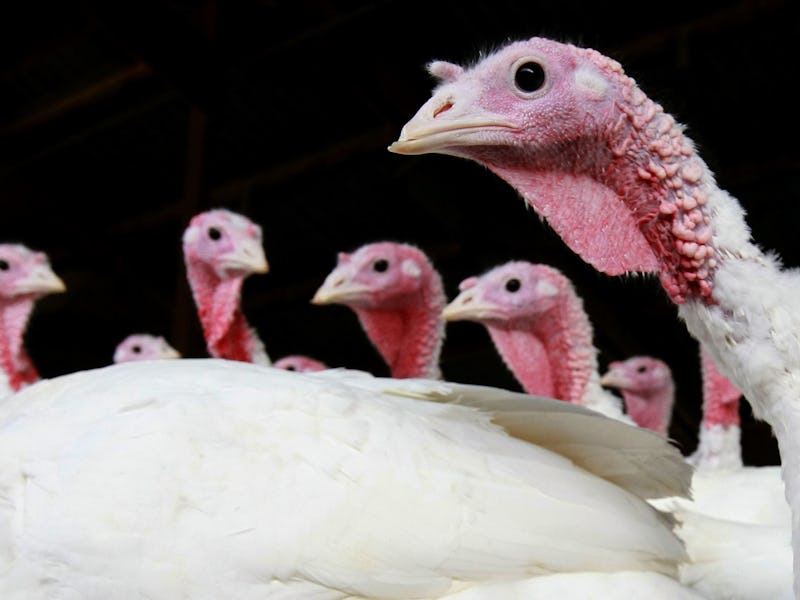America Will Eat Lab-Grown Thanksgiving Turkeys by 2030

Thanksgiving: a time for togetherness, catching up with families, and if researchers have their way, eating turkey meat grown in bioreactors.
Scientists want to take lab-grown meat to the next level, developing new technologies that will grow tanks full of meat — unlike today’s expensive and uneconomical efforts that grow small amounts of meat in thin sheets.
“Years from now, when people are [in] the grocery store trying to decide if they want to buy traditional versus cultivated meat, I am 100 percent sure that cultured meat is going to be just as cheap, if not cheaper,” Paul Mozdziak, a researcher at the North Carolina State University, writes in a report published Wednesday.
Meat grown in a lab is not new, but right now it’s prohibitively expensive. Maastricht University Mark Post grew and ate the world’s first lab-grown burger in 2013, but the experiment cost over $300,000. Post teamed up with food technician Peter Verstrate to form Mosa Meat, a company dedicated to pushing those costs down and getting lab-grown meat on store shelves by 2020. Other companies, like Beyond Meat, are pushing to refine the technology by adding in extra juices and flavor.
A burger grown in a petri dish using cow muscle stem cells.
Making a turkey-sized amount of meat is going to require new technologies. Mozdziak has been working with David Kaplan, a biomedical engineer at Tufts University, on bioreactor technology that would help companies scale up operations.
Turkey breast meat, Mozdziak said, is particularly suited to the idea as it’s easier to create fat cells that add extra flavor. Unlike a conventional turkey, the lab also wouldn’t need to worry about growing the rest of the bird. If all goes to plan, bioreactor turkeys could hit shelves by 2030.
It may take a while before lab-grown meat becomes a mainstay of the Thanksgiving dinner table. But the impact on factory farming, which could help reduce CO2 emissions, means work on the technology is vital to help move towards a sustainable future.